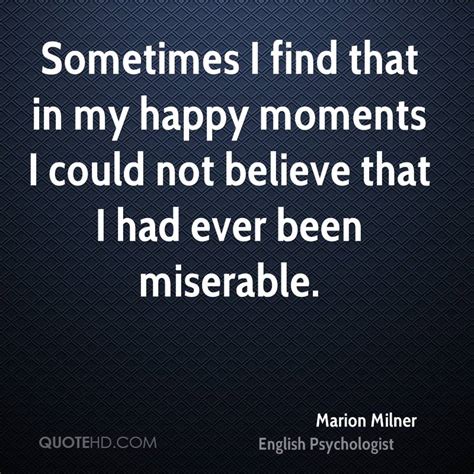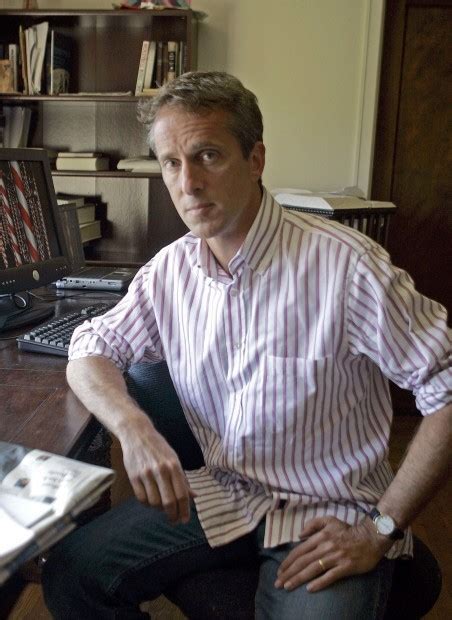A Quote by Oscar Wilde
Pleasure is the only thing one should live for, nothing ages like happiness.
Related Quotes
But there's the rub. The present can never deliver one thing: meaning. The way of happiness and meaning are not the same. To find happiness, a man need only live in the moment; he need only live for the moment. But if he wants meaning--the meaning of his dreams, his secrets, his life--a man must reinhabit his past, however dark, and live for the future, however uncertain. Thus nature dangles happiness and meaning before us all, insisting only that we choose between them.
Joy is not the same as pleasure or happiness. A wicked and evil man may have pleasure, while any ordinary mortal is capable of being happy. Pleasure generally comes from things, and always through the senses; happiness comes from humans through fellowship. Joy comes from loving God and neighbor. Pleasure is quick and violent, like a flash of lightning. Joy is steady and abiding, like a fixed star. Pleasure depends on external circumstances, such as money, food, travel, etc. Joy is independent of them, for it comes from a good conscience and love of God.
Pleasure is not the goal of man, but knowledge. Pleasure and happiness comes to an end. It is a mistake to suppose that pleasure is the goal. The cause of all the miseries we have in the world is that men foolishly think pleasure to be the ideal to strive for. After a time man finds that it is not happiness, but knowledge, towards which he is going, and that both pleasure and pain are great teachers.
All men who live only according to their five senses, and seek nothing beyond the gratification of their natural appetites for pleasure and reputation and power, cut themselves off from that charity which is the principle of all spiritual vitality and happiness because it alone saves us from the barren wilderness of our own abominable selfishness.
Meditation is not the pursuit of pleasure and the search for happiness. Meditation, on the contrary, is a state of mind in which there is no concept or formula, and therefore total freedom. It is only to such a mind that this bliss comes unsought and uninvited. Once it is there, though you may live in the world with all its noise, pleasure and brutality, they will not touch that mind.
So what is happiness? I am sure this question will be asked through the ages. And I doubt there is one answer for all people. Like heaven and hell, one person's happiness can be another person's unhappiness, which is why I'm not attempting to tell you what to do to find your happiness. I have enough trouble finding and hanging onto my own true happiness.
Pain and pleasure, good and evil, come to us from unexpected sources. It is not there where we have gathered up our brightest hopes, that the dawn of happiness breaks. It is not there where we have glanced our eye with affright, that we find the deadliest gloom. What should this teach us? To bow to the great and only Source of light, and live humbly and with confiding resignation.
The thing with Catholicism, the same as all religions, is that it teaches what should be, which seems rather incorrect. This is what should be. Now, if you're taught to live up to a what should be that never existed - only an occult superstition, no proof of this should be - then you can sit on a jury and indict easily, you can cast the first stone, you can burn Adolf Eichmann, like that!
A tease is a con. You press a spot because you know that it can be pressed, and while the sucker is feeling the pleasure or the pain resulting from the pressure, you take something from him. ...A flirt doesn't do that. A flirt does a dance within the context of giving pleasure. Referring to this, referring to that. And suddenly, following the references, you find a little surprise. Nothing enormous. Nothing like 'Feed on me.' Nothing like that. Something small with a bow on it. It's a pleasure. A surprise, and a *gift*.







































